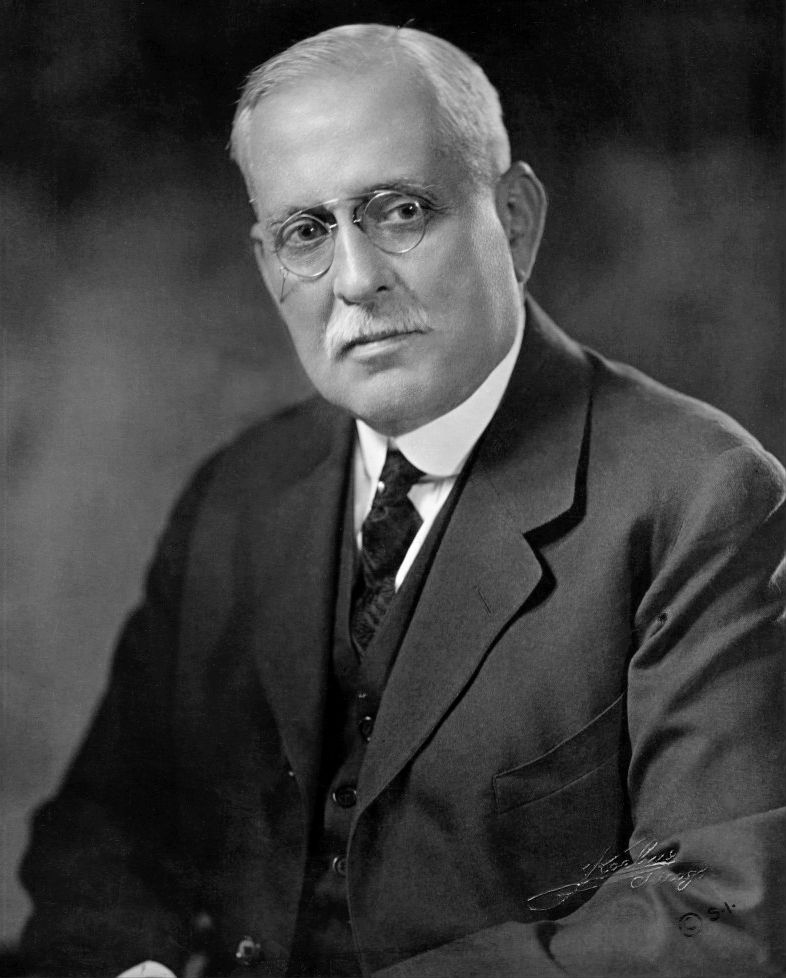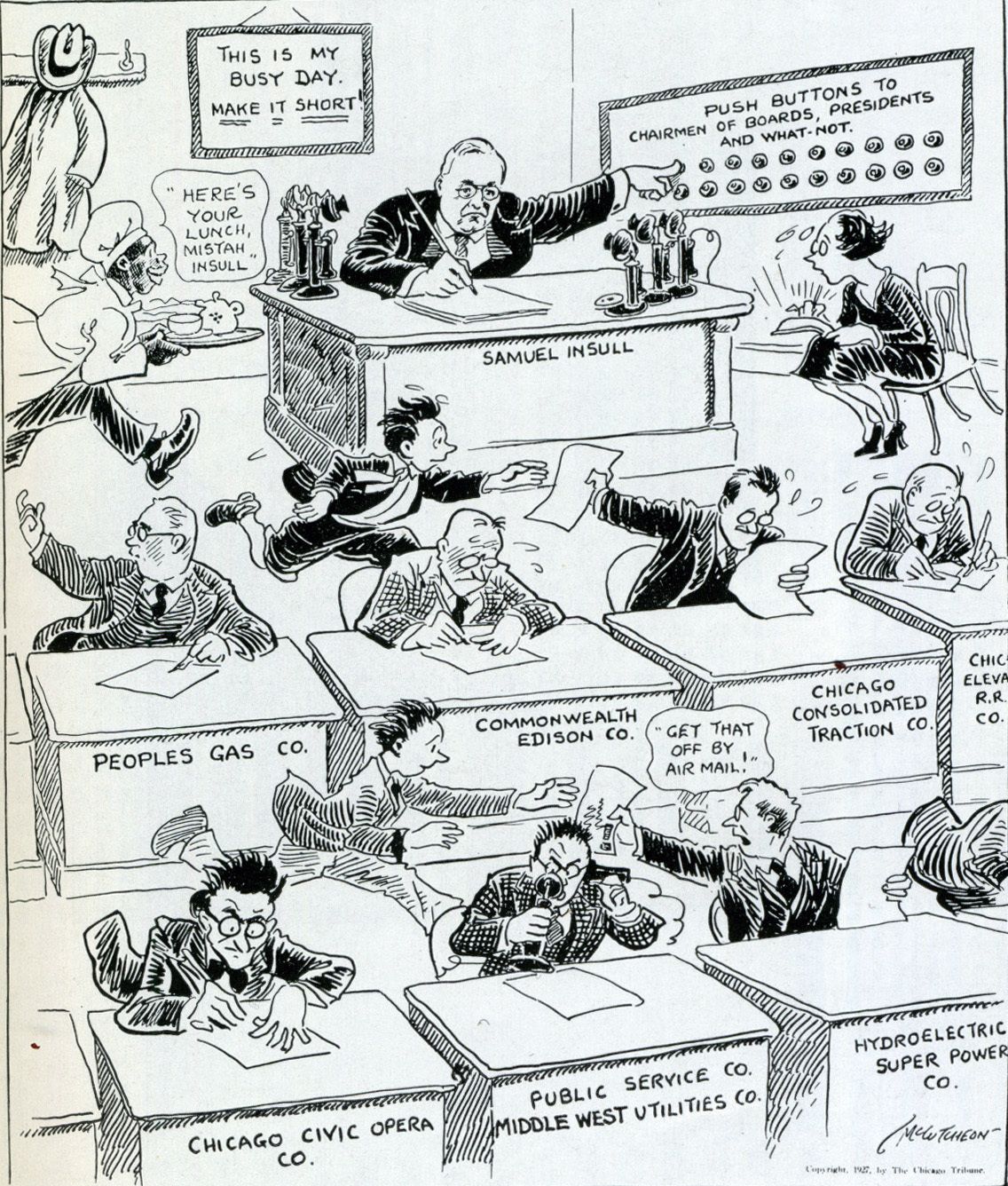Samuel Insull: Electrifying Chicago

Samuel Insull (1859-1938).
Between arriving in the U.S. as Thomas Edison’s young secretary in 1881 and leaving 50 years later in the wake of antitrust charges, Samuel Insull revolutionized electricity in the Midwest and became the most powerful utility and railroad magnate in the region.
By 1892, Insull had risen enough in the Edison ranks to become president of Chicago Edison Co., which he merged with another company in 1907 to create Commonwealth Edison. By purchasing increasing portions of the city’s electrical infrastructure and working to bring electricity to rural areas, Insull acquired a virtual monopoly, building the largest privately controlled public utility business in the world.

Cartoonist John T. McCutcheon portrayed the extent of Samuel Insull’s various business interests in 1927 in the Chicago Tribune.
Hawthorn Farms, Insull’s estate outside Libertyville (now the Cuneo Museum), gave him an interest in Lake County. He became a powerful force rural development, seeking to create demand for electricity and promote passenger traffic on his North Shore Electric Line.
With an interest in golf and myriad connections, Insull also had a stake in more than Lake Forest club. As one of the founding members of Knollwood Club in 1924, his efforts were rather more successful than they would be five years later, when he bought Mellody Farm from the Armour family. When the collapse of Insull’s holding company wiped out the life savings of thousands of shareholders during the Great Depression, all thoughts of a “Millionaires’ Country Club” at Mellody Farm were abandoned.
Though ultimately acquitted of all fraud and antitrust charges, Insull lived abroad for the rest of his life, a self-described "poor man." He died in France of a heart attack in 1938, His estate was found to be worth about $1,000, with debts totaling $14,000,000.